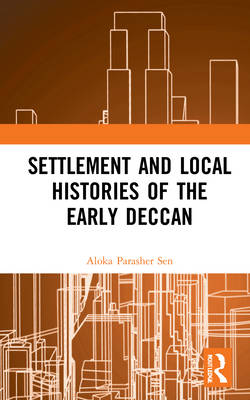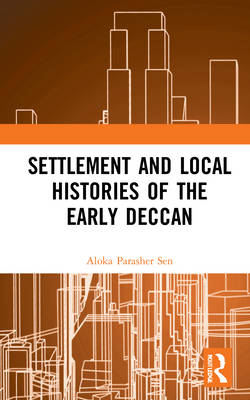
- Retrait gratuit dans votre magasin Club
- 7.000.000 titres dans notre catalogue
- Payer en toute sécurité
- Toujours un magasin près de chez vous
- Retrait gratuit dans votre magasin Club
- 7.000.0000 titres dans notre catalogue
- Payer en toute sécurité
- Toujours un magasin près de chez vous
Description
This book is a detailed account of the multi-faceted history of the Deccan. Beginning with its historical foundations it goes on to delineate how it is the key to understanding its social, economic, political and ideological evolution.
Containing nine essays, this volume attempts to look at regional history from the perspective of given localities that provides the many facets of early Deccani society and culture. Hitherto, this was mainly articulated in terms of the broad categories of language and religion in the many historical studies of present-day linguistic states. In focussing on local spatial contexts as the primary layer of historical reality, the book has relied on multiple sources of information, largely extant archaeological material while also drawing information from inscri-ptions, textual material and oral memory. The book also reflects on the important events of various periods by placing them as part of larger social and economic processes emanating from the local.
The essays in this collection have been presented thematically moving from general issues discussed in Part I to the more particular in Part II and finally, to reflect on the multiplicity and simultaneity of different kinds of processes in a constant state of negotiation, in Part III. The historical sensibilities of people in various locations right from Kotalingala and Dhulikatta to Phanigiri, Patancheru, Kondapur and Nanakramguda and from Thotlakonda to Nagarjunakonda, Amaravati, Vaddamanu and Shravan Belgola have been recounted.
Please note: Taylor & Francis does not sell or distribute the Hardback in India, Pakistan, Nepal, Bhutan, Bangladesh and Sri Lanka.
Spécifications
Parties prenantes
- Auteur(s) :
- Editeur:
Contenu
- Nombre de pages :
- 322
- Langue:
- Anglais
Caractéristiques
- EAN:
- 9780367726218
- Date de parution :
- 01-03-21
- Format:
- Livre relié
- Format numérique:
- Genaaid
- Dimensions :
- 138 mm x 216 mm
- Poids :
- 719 g

Les avis
Nous publions uniquement les avis qui respectent les conditions requises. Consultez nos conditions pour les avis.






